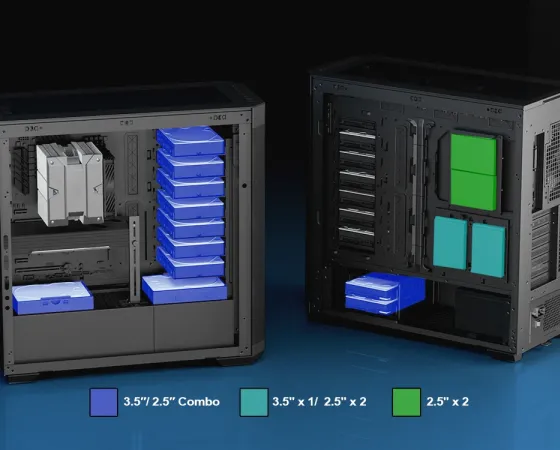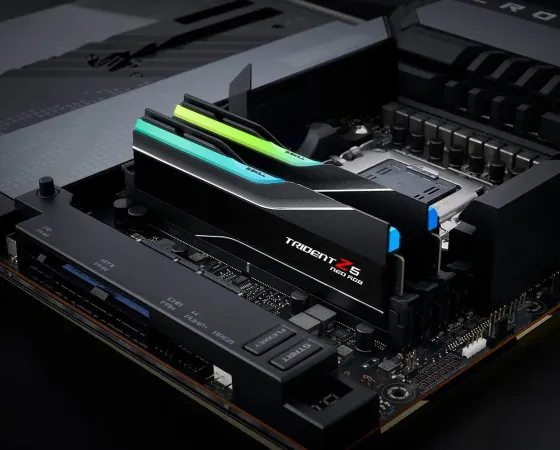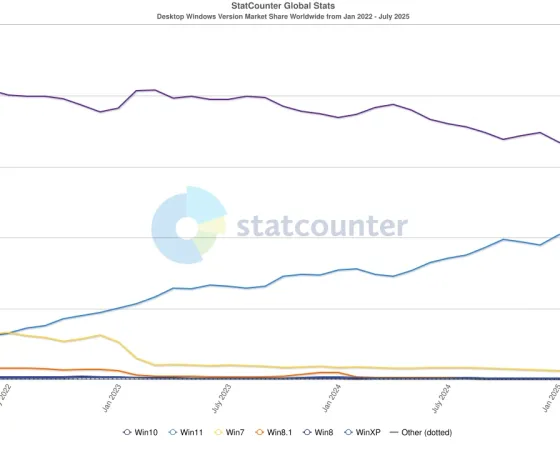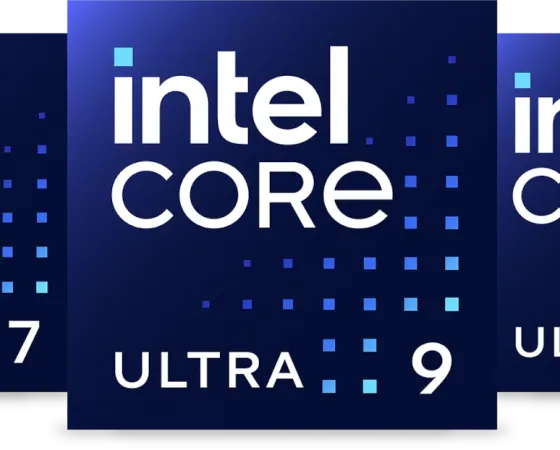China "is pouring money into building an AI supply chain with as little reliance on the U.S. as possible," the Wall Street Journal noted this weekend.
But what does that look like? The New York Times visits Liangzhu, "the coder 'village' at the heart of China's AI frenzy... a quiet suburb of the southern Chinese city of Hangzhou... As China faces off with the United States over tech primacy, Hangzhou has become the centre of China's AI frenzy," with its proximity to tech companies like Alibaba and DeepSeek..."
In Liangzhu, many engineers said they were killing time until they could create their own startups, waiting out noncompete agreements they had signed at bigger companies like ByteDance...
But some said the government support for Hangzhou's tech scene had scared off some investors. Several company founders, who asked not to be named so they could discuss sensitive topics, said it was difficult for them to attract funds from foreign venture capital firms, frustrating their ambitions to grow outside China. The nightmare situation, they said, would be to end up like ByteDance, the Chinese parent of TikTok, whose executives have been questioned before Congress about the company's ties to the Chinese government. Founders described choosing between two paths for their companies' growth: Take government funding and tailor their product to the Chinese market, or raise enough money on their own to set up offices in a country like Singapore to pitch foreign investors. For most, the first was the only feasible option.
Another uncertainty is access to the advanced computer chips that power artificial intelligence systems. Washington has spent years trying to prevent Chinese companies from buying these chips, and Chinese companies like Huawei and Semiconductor Manufacturing International Corp. are racing to produce their own. So far, the Chinese-made chips work well enough to help companies like ByteDance provide some of their AI services in China. Many Chinese companies have created stockpiles of Nvidia chips despite Washington's controls. But it is not clear how long that supply will last, or how quickly China's chipmakers can catch up to their American counterparts...
Liangzhu villagers have been hosting film nights. They had recently gathered to watch "The Matrix." Afterward, they decided the movie should be required viewing, Lin said. Its theme — people finding their way out of a vast system controlling society — provided spot-on inspiration. Aspiring founders in Liangzhu, even those who did not go to top universities, believe they could start the next world-changing tech company, said Felix Tao [a 36-year-old former Facebook and Alibaba employee.] "Many of them are super brave to make a choice to explore their own way, because in China that is not the common way to live your life."


Read more of this story at Slashdot.
 Nos confrères de Digital Foundry ont souhaité comparer la Switch 2 de Nintendo et le Steam Deck OLED de Valve lors d'un Performance Test diablement complet sur un jeu précis et pas n'importe lequel : Cyberpunk 2077, un monument du jeu PC depuis déjà plus de 4 ans. Ce qui est intéressant dans leur te...
Nos confrères de Digital Foundry ont souhaité comparer la Switch 2 de Nintendo et le Steam Deck OLED de Valve lors d'un Performance Test diablement complet sur un jeu précis et pas n'importe lequel : Cyberpunk 2077, un monument du jeu PC depuis déjà plus de 4 ans. Ce qui est intéressant dans leur te... La plateforme AM5 va encore avoir droit à une nouvelle génération de processeurs avant de sans doute laisser le champ libre à celle qui lui succèdera ensuite. Ce fut d'ailleurs, dans l'esprit de bien des acheteurs, un argument important en faveur d'AMD à l'heure du choix car, en face, Intel avait to...
La plateforme AM5 va encore avoir droit à une nouvelle génération de processeurs avant de sans doute laisser le champ libre à celle qui lui succèdera ensuite. Ce fut d'ailleurs, dans l'esprit de bien des acheteurs, un argument important en faveur d'AMD à l'heure du choix car, en face, Intel avait to... Heureusement que nous précisons en fin de titre de l'actualité qu'il s'agit de Radeon RX 9070 XT, sinon vous auriez pu croire de H&Co avait forcé sur l'apéro et confondu Hardware et Hentai étrange. Volontairement ou non, Steve de la chaine YouTube Gamers Nexus y met en plus son grain de sel dans...
Heureusement que nous précisons en fin de titre de l'actualité qu'il s'agit de Radeon RX 9070 XT, sinon vous auriez pu croire de H&Co avait forcé sur l'apéro et confondu Hardware et Hentai étrange. Volontairement ou non, Steve de la chaine YouTube Gamers Nexus y met en plus son grain de sel dans... Nous allons vous parler aujourd'hui d'un boitier signé qui a été officialisé au mois de janvier 2025 : le SilverStone SETA H2. La marque est peu distribuée en France, aussi faire des actualités de présentation de produits qui ne seront peut-être jamais commercialisés chez nous est toujours un dilemm...
Nous allons vous parler aujourd'hui d'un boitier signé qui a été officialisé au mois de janvier 2025 : le SilverStone SETA H2. La marque est peu distribuée en France, aussi faire des actualités de présentation de produits qui ne seront peut-être jamais commercialisés chez nous est toujours un dilemm... Au tout début de l'année 2025, trois sociétés dépassaient les 3 billions de dollars de capitalisation boursière : Apple, Microsoft et NVIDIA. Les trois ont tour à tour pris la première position, avant que la conjoncture économique ne leur fasse perdre gros, à partir du mois de février environ. Celle...
Au tout début de l'année 2025, trois sociétés dépassaient les 3 billions de dollars de capitalisation boursière : Apple, Microsoft et NVIDIA. Les trois ont tour à tour pris la première position, avant que la conjoncture économique ne leur fasse perdre gros, à partir du mois de février environ. Celle... Les analystes du groupe International Data Corporation (IDC) viennent de publier leurs conclusions concernant les ventes d'ordinateurs "traditionnels" pour le second trimestre 2025. Alors on apporte tout de suite la signification pour eux de ce "traditionnel" : cela inclut les ordinateurs fixes (des...
Les analystes du groupe International Data Corporation (IDC) viennent de publier leurs conclusions concernant les ventes d'ordinateurs "traditionnels" pour le second trimestre 2025. Alors on apporte tout de suite la signification pour eux de ce "traditionnel" : cela inclut les ordinateurs fixes (des... Les annonces officielles de G.Skill sont généralement à prendre avec des pincettes car si la firme est très présente en matière de communication, c'est aussi 9 fois sur 10 pour annoncer juste des résultats d'essais en laboratoire, des tentatives d'overclocking en gros et pas du tout des produits fin...
Les annonces officielles de G.Skill sont généralement à prendre avec des pincettes car si la firme est très présente en matière de communication, c'est aussi 9 fois sur 10 pour annoncer juste des résultats d'essais en laboratoire, des tentatives d'overclocking en gros et pas du tout des produits fin... Vous envisagez depuis un moment déjà de vous laisser tenter par une configuration mini-ITX, mais n'arriviez pas à totalement vous décider ? Voici peut-être l'occasion qu'il vous fallait pour vous décider avec un kit vous simplifiant la vie et proposé à un excellent prix. Son petit nom : le Cooler Ma...
Vous envisagez depuis un moment déjà de vous laisser tenter par une configuration mini-ITX, mais n'arriviez pas à totalement vous décider ? Voici peut-être l'occasion qu'il vous fallait pour vous décider avec un kit vous simplifiant la vie et proposé à un excellent prix. Son petit nom : le Cooler Ma... Vous êtes décidés à vous monter une configuration AM5 plutôt d'entrée de gamme, peut-être en vous disant qu'il sera temps d'upgrader le CPU vers un modèle plus puissant quand Zen 6 sera là avec toutes ses promesses et que vous aurez eu assez de temps pour remettre des sous de côté. Un processeur à m...
Vous êtes décidés à vous monter une configuration AM5 plutôt d'entrée de gamme, peut-être en vous disant qu'il sera temps d'upgrader le CPU vers un modèle plus puissant quand Zen 6 sera là avec toutes ses promesses et que vous aurez eu assez de temps pour remettre des sous de côté. Un processeur à m... En 2026, Intel va lancer sa nouvelle génération de processeurs Xeon équipés de Performance-cores : Diamond Rapids. Il succèderont aux actuels Granite Rapids lancés fin 2024, qui pouvaient embarquer jusqu'à 128 P-cores dans la version la plus sévèrement burnée : le Xeon 6980P. D'après un rapport publ...
En 2026, Intel va lancer sa nouvelle génération de processeurs Xeon équipés de Performance-cores : Diamond Rapids. Il succèderont aux actuels Granite Rapids lancés fin 2024, qui pouvaient embarquer jusqu'à 128 P-cores dans la version la plus sévèrement burnée : le Xeon 6980P. D'après un rapport publ... Au mois de mars 2025, nous vous présentions une GeForce RTX 5090 D avec des étages d'alimentation très impressionnants et la présence de deux connecteurs d'alimentation externe 12V-2x6. Signée GALAX, la carte était pressentie pour n'être distribuée qu'aux overclockeurs extrême directement, avant que...
Au mois de mars 2025, nous vous présentions une GeForce RTX 5090 D avec des étages d'alimentation très impressionnants et la présence de deux connecteurs d'alimentation externe 12V-2x6. Signée GALAX, la carte était pressentie pour n'être distribuée qu'aux overclockeurs extrême directement, avant que... Lancé en octobre 2021, il aura donc fallu attendre la bagatelle de 45 mois pour que Windows 11 soit plus utilisé que Windows 10 dans les PC à l'échelle mondiale. C'est en tout cas ce qu'annonce le site StatCounter avec ces tout derniers chiffres, publiés en ce début juillet 2025 :On se doutait bien...
Lancé en octobre 2021, il aura donc fallu attendre la bagatelle de 45 mois pour que Windows 11 soit plus utilisé que Windows 10 dans les PC à l'échelle mondiale. C'est en tout cas ce qu'annonce le site StatCounter avec ces tout derniers chiffres, publiés en ce début juillet 2025 :On se doutait bien... Arrow Lake-S et la plateforme LGA1851 resteront sans doute dans l'histoire d'Intel comme un sacré bide commercial. Avant même le lancement, les fuites annonçant des performances en retrait en jeu ont laissé des traces assez indélébiles dans l'esprit de bien des joueurs PC, d'autant qu'au lancement t...
Arrow Lake-S et la plateforme LGA1851 resteront sans doute dans l'histoire d'Intel comme un sacré bide commercial. Avant même le lancement, les fuites annonçant des performances en retrait en jeu ont laissé des traces assez indélébiles dans l'esprit de bien des joueurs PC, d'autant qu'au lancement t...